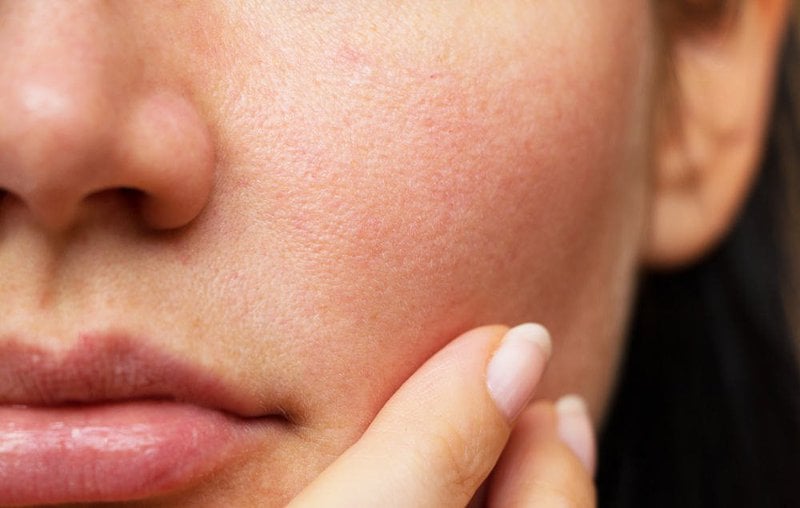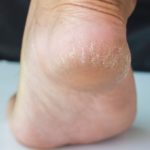What causes dry skin?
As we age, the moisture in our skin decreases, causing the fats and collagen to decrease as well, making the skin thinner and drier. In addition, the worsening climate has affected us in many ways, including our hair and skin… Although dry skin is a common condition in winter, climate change has made this condition common in all seasons.

You may have dry skin if your parents have this condition. In addition, if there are some underlying health factors, they may also affect the condition of the skin. Studies have shown that collagen supplementation can enhance hydration, reduce dryness, and reduce the depth of wrinkles.
Dry skin changes the structure of the skin from soft to rough. This can make the skin feel itchy or change color compared to normal skin color. The skin becomes fragile, easily peels or cracks, and can develop painful sores.
How to treat dry skin?
– Use moisturizers:
Moisturizers are the main form of treatment that helps prevent cracking and has the effect of restoring the natural protective barrier of the skin. Choose ingredients such as softening agents to soothe and moisturize the skin; hyaluronic acid helps increase moisture in the skin…
– Use medication:
If the skin is severely dry, the doctor may prescribe steroid creams, which have the effect of reducing swelling (inflammation) on the skin, causing rashes and itching. In severe cases, oral medication or injections may be necessary…
When choosing a moisturizer, remember that your skin is unique and a product that suits others may not be the best for your skin.
Some supplements good for dry skin
– Vitamin D: Vitamin D supports the function of the skin’s protective barrier, cell growth, and immune system. The research shows that low levels of vitamin D can lead to dry skin and skin conditions such as eczema and psoriasis.
– Collagen: Studies have shown that collagen supplementation can enhance skin hydration and reduce the depth of wrinkles. So collagen can have some added benefits for treating dry skin.

– Vitamin C: Vitamin C is an essential antioxidant for collagen production and skin health.
– Fish oil: Research shows that fish oil supplementation can enhance skin hydration, alleviate itching caused by dry skin, and improve skin conditions such as psoriasis.
Preventing dry skin
– Cleanse the face with a mild, unscented cleanser.
– Take a warm (not hot) bath. After bathing, pat dry the dry skin with a soft towel. Moisturize immediately after bathing, while the skin is still moist.
– Manage stress, as stress can worsen conditions such as eczema and other skin conditions that cause dry skin.
– Prevent water loss.
– Quit smoking as nicotine dries the skin.





































